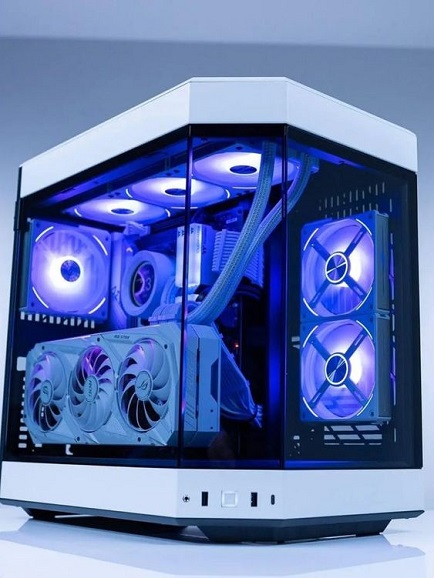In the fast-paced world of gaming, having the right setup can mean the difference between victory and defeat. Gaming PCs are at the heart of this experience, offering unparalleled performance, speed, and graphics capabilities. Whether you’re a casual gamer or a competitive esports enthusiast, understanding the components that make up a gaming PC can help you make informed choices for your next purchase or upgrade.
Why Choose a Gaming PC?
Gaming PCs are designed specifically for handling the demanding requirements of modern games. Unlike standard desktop computers, gaming PCs come equipped with high-end components that allow for smoother gameplay, stunning graphics, and better overall performance. Here are a few reasons why investing in a gaming PC is worthwhile:
- Performance: Gaming PCs are built to handle resource-intensive tasks, ensuring that games run smoothly even at high settings. With powerful CPUs and GPUs, these machines provide the processing power necessary for seamless gameplay.
- Upgradability: One of the biggest advantages of gaming PCs is their modular design. This allows gamers to upgrade individual components like graphics cards, RAM, and storage without replacing the entire system, ensuring longevity and adaptability as technology advances.
- Customization: Building or choosing a gaming PC means you can customize it to suit your preferences. From RGB lighting to unique case designs, you can create a machine that reflects your personal style.
Key Components of a Gaming PC
To understand what makes a great gaming PC, it’s important to know the key components that influence performance:
- Graphics Card (GPU): The GPU is arguably the most crucial component for gaming. It determines how well your system can render graphics. High-quality GPUs from manufacturers like NVIDIA and AMD can dramatically improve your gaming experience, providing higher frame rates and better visual fidelity.
- Processor (CPU): The CPU handles all the calculations and processes in a game. A powerful multi-core processor can help reduce lag and improve responsiveness, especially in CPU-intensive titles.
- Memory (RAM): Sufficient RAM ensures smooth multitasking and helps in loading game assets quickly. For gaming, 16GB of RAM is generally considered the sweet spot, with 32GB providing future-proofing for more demanding titles.
- Storage: Fast storage options, like SSDs, significantly reduce loading times and improve overall system responsiveness. A combination of SSD for the operating system and key games, alongside a larger HDD for additional storage, is often the best setup.
- Cooling System: High-performance gaming PCs generate heat, so effective cooling is essential. Whether it’s air cooling or liquid cooling, maintaining optimal temperatures ensures that your system runs efficiently and lasts longer.
Choosing the Right Gaming PC
When selecting a gaming PC, consider the types of games you play and your performance expectations. If you’re into competitive gaming, prioritize a high refresh rate monitor and a powerful GPU. For impressive single-player experiences, invest in a high-quality audio setup and a fast processor.
- Pre-Built vs. Custom Builds: Pre-built gaming PCs offer convenience and are often well-optimized, but building your own PC allows for tailored specifications and potential cost savings.
- Budget Considerations: Determine your budget and research the best options within that range. While it can be tempting to go for the most powerful components, it’s important to find a balance that meets your gaming needs without breaking the bank.

